“Kinsey’s pioneering work is still one-of-a-kind because in all the time since, only a handful of sex researchers have even tried to match his breadth, depth, and scale. For all our obsession with sex, we’re skittish about studying it. There’s one major exception: a large survey, conducted in the 1990s, that far outdid Kinsey in terms of statistical reliability. It’s the most authoritative sexual self-portrait the country has. But you’ve probably never heard of its author, because unlike Kinsey, he has worked hard to keep it that way. Alfred Kinsey may have gotten the biopic, but according to Slate‘s Amanda Schaffer, it’s the University of Chicago’s Edward Laumann we should now be turning to for reliable data on carnal matters. “Kinsey’s data aren’t the last word on matters sexual, but they’re sometimes still the first.“
Tag: Love & Sex
Love Songs ’07.
Oof, Valentine’s Day. Not a holiday I’ve been looking forward to of late, even if it does provide the chance to write up some favorite songs here, as per recent tradition. As many of y’all surely know, V-Day and all the attending hoopla is rarely much fun when you’re single, and it’s even worse when you’re walking wounded, as I’d number myself these days. To wit: Late last year, I got kicked right in the teeth by someone I was really fond of, and even though it’s been many months now since it all went down — long enough that I really should’ve just gotten over it and moved on — most days since then are sadly still kind of a struggle.
But, oh well…no hope, no harm, just another false alarm. I’ve loitered on the Injured List before — in fact, you could say much of my adult romantic life has been Grant Hillish to the extreme, all burgeoning potential cut short by season-ending injuries — so I’m pretty sure, at an intellectual level if not yet a gut one, I’ll get back in the game someday. In the meantime, here’s some music for ya. Usual rules apply: the files will be only up for a few days, right-click to save them, and please don’t link to them directly.
things fall apart, and tend to shatter
she like that s**t don’t matter
when I get home get at her
through letter, phone, whatever
let’s link, let’s get together
s**t you think not, think the Thought went home and forgot?”
For all the genre’s many strengths, the slice-of-life relationship song isn’t normally what you’d consider a central feature of hip-hop. Cuts like Method Man’s “All I Need,” Outkast’s “Mrs. Jackson,” or the Tribe’s “Bonita Applebaum” notwithstanding, shake-your-booty jams and odes to the playa lifestyle outnumber romantic ditties by at least five or six to one. “You Got Me,” from the Roots’ 1999 album Things Fall Apart, numbers among the exceptions.
Co-written by Jill Scott (who performed the song in Dave Chappelle’s Block Party and on tour for the Roots) and co-sung by Eykah Badu (on the original cut and video), “You Got Me” is a story of a meet-cute (“We used to live in the same building on the same floor and never met before until I’m overseas on tour“) that grows into a relationship that works despite the odds (“When you out there in the world, I’m still your girl“), and despite the loose talk all around. (“Lies come in, that’s where the drama begins.“)
It ain’t easy for the couple in “You Got Me,” but they’re making do. They got each other, and most of the time, that’s enough to get by. (And bonus points for ?uestlove’s infectious drum-and-bass outro — our time with this pair ends with the fade, but their story clearly continues.)
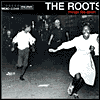
You Got Me — The Roots feat. Erykah Badu (3.9MB, 4:19)
(song removed)
From Things Fall Apart.
[Update:]
Relationships have all been bad.
Mine’ve been like Verlaine’s and Rimbaud.
But there’s no way I can compare
All those scenes to this affair,
Yer gonna make me lonesome when you go.“
I picked a Bob Dylan song last year (“Most of the Time”), and I freely admit that, however brilliant, Blood on the Tracks is now one of the hoariest of breakup-album cliches. Still, “You’re Gonna Make Me Lonesome When You Go” was on my mind a lot over the past year (see also my review of The Fountain), so it’s going up anyway (and, hell, maybe I’ll pick a Dylan song every Valentine’s Day from now on — he’s got enough to go around.)
Here, unlike most of the cuts on the album, Bob is actually happy (“I could stay with you forever and never realize the time.“) — Life is good to him, he’s got a good woman by his side. But, though he’s ignoring it, the insurmountable problem — “the crystal…in the steel at the point of fracture,” to borrow a phrase from All the King’s Men — is already manifest, a tiny speck on the horizon soon to loom over everything. Despite his euphoria, Dylan can already recognize that this relationship is finite: Eventually, “Yer gonna have to leave me now, I know.” So, Dylan listens to the crickets and the river instead, and does his best to relish what happy moments still lie ahead, before the axe inevitably falls.
(Everybody and their brother owns Blood on the Tracks — if you don’t, buy it! For you and your brother! — so I’ve also thrown in a cover version by Mary Lou Lord. It’s a bit alt-chickish, sure, but I prefer it to other versions I can name, such as Elvis Costello’s too-jaunty-by-far take on Kojak Variety.)

You’re Gonna Make Me Lonesome When You Go — Bob Dylan (2.8MB, 2:55)
(song removed)
From Blood on the Tracks.

You’re Gonna Make Me Lonesome When You Go — Mary Lou Lord (5.3MB, 3:46)
(song removed)
From Hard Rain: A Tribute to Bob Dylan, Vol. 1.
[Update:]
And if you want a doctor, I’ll examine every inch of you.
If you want a driver, climb inside
Or if you want to take me for a ride,
You know you can…
I’m your man.“
Canada’s answer to Dylan, the inimitable Leonard Cohen has also been mining the joys and perils of romantic entanglements for four decades now. To be honest, I’m hit-or-miss with his early stuff, but I just can’t get enough of his “Satan’s lounge act” later period. (As I’ve said before, and as with Dylan, Tom Waits, etc., I’m basically a sucker for the “broken, gravelly voices with tales to tell” genre.)
Like “Everybody Knows” and “First We Take Manhattan,” “I’m Your Man” is one of the better-known songs from Cohen’s later incarnation (and the name of a recent tribute documentary to him, which I haven’t seen.) “I’m Your Man” combines a lot of Cohen’s strengths — that debauched, plaintive, and world-weary croak, a knack for memorable imagery and earthy allusions (even at his most bathetic, Cohen never lets you forget there’s a primal beast that “won’t go to sleep” raging inside him, one with carnal appetites inseparable from his professions of love — see also “In My Secret Life,” “Waiting for the Miracle,” or countless others), and a second-act twist that complicates what initially seemed to be a straightforward pop ditty.
Here, what appeared to be a confident ode to that special gal in his life becomes instead a hail-mary plea for forgiveness. (“I’ve been running through these promises to you, that I made and I could not keep“), one that he already knows is not going to shake out as he desires (“A man never got a woman back, not by begging on his knees…“) The joke is, Cohen’s not her man anymore. No matter how many times he says otherwise or tries to contort himself to regain his muse’s affections, Cohen is stuck being himself, the guy who blew it somewhere along the line. Sorry, Leonard. At least you got Manhattan.
(song removed)
From I’m Your Man.
[Update:]
‘There’s too much caffeine
In your bloodstream
And a lack of real spice
In your life’
I said :
‘Leave me alone
Because I’m alright, dad
Surprised to still
Be on my own.’
Oh, but don’t mention love
I’d hate the strain of the pain again…
Since I already lyric-checked the Smiths earlier in this post, why not go straight to the source? Maybe they just captured a certain zeitgest of feeling alone, different, and melancholy in the Reagan-Thatcher era. Still, the Smiths have a lot to answer for their part in helping to fashion a generation of angst-ridden, self-absorbed romantics (in which I include myself.) Either way, nobody does “way over yonder in the minor key” quite like Morrissey, Marr, & co., who built an entire career on the twisted, solipsistic pleasure one comes to take in excessive moping.
What the Smiths perfectly capture in song after song is the narcissism of the whole enterprise. With all the horrible things happening in the world every day to people who don’t deserve them, it takes no small amount of self-absorption and lack of perspective to luxuriate in a slough of despond for weeks on end. And yet, we all do it all the time, dwelling on our own petty problems while the world seems to crash and burn — it’s virtually inescapable.
In “A Rush and a Push and the Land is Ours,” probably my favorite Smiths song (well, along with “This Night Has Opened My Eyes”), the band brings this irony front and center. In the lyrics’ biting condescension even in the midst of gloom (“people who are uglier than you and I, they take what they need and just leave“), in the vague disreputability of the land-grab metaphor at the heart of the song (“A rush, a push, and the land that we stand on is ours! It has been before, so why can’t it be now?“), and in Morrissey’s trademark wailing, swooning, and growling, “A Rush, A Push, and the Land Is Ours” captures both the varied emotions and uglier facets of heartache that will attend all too many of us this holiday Wednesday. (Also, courtesy of Youtube, here’s what appears to be the vintage video.)
(song removed)
From Strangeways, Here We Come.
However you stand on this Valentine’s Day, have a safe and a happy one out there, as always. (And, as I noted last year, if you want more music, Fluxblog does the mp3blog thing day in and day out, and is considerably better at it than I am. And Max of Lots of Co. offers choice dance/techno/pop mixes around the start of every month.)
A World of Addicts.
Love is a stranger in an open car…or is it just a much-needed dopamine fix? Somebody writes this story every Valentine’s Day. Still, I guess it’s something to keep in mind. (And sorry, Berk, you may be my Valentine again this year, but the same type of deconstruction applies to you. No hard feelings, bud.)
Love Songs ’06.
Happy Valentine’s Day. In keeping with a GitM tradition started last year, and since y’all out there, dear readers, are once again my Valentines for the day whether you like it or not (I long ago stopped delving into personal detail around these parts — Suffice to say that, my fellow Americans, the State of the Love Life is, um, not good. In fact, like those pesky WMD, its existence has been almost entirely theoretical for some time…Ah, well.) — I’ve thrown up more tunes for your holiday perusal. At any rate, as per the usual mp3blog rules: the files will be only up for a day or two, right-click to save them, and please don’t link to them directly. Otherwise, enjoy!
Stare at the TV screen
I don’t know what to do
I need a rendezvous
For sundry reasons involving the Internet Age, Kraftwerk’s “Computer Love” has taken on all kinds of ulterior meanings since it first debuted on 1981’s Computer World, when 300 baud modems (“I call this number for a data date“) and TRS-80s operating on tape decks were the order of the day. When these German electronica pioneers weren’t creating the music of the future, it seems, they were presciently anticipating our current era of Instant Messaging, online dating sites, and the like. Still, its newer resonances notwithstanding, I’ve always found something giddily innocent about this track. While the lyrics suggest a much more downbeat affair, the chirps and whistles in this song never fail to bring a big goofy grin to my face — particularly in this clubbier 1991 remix version, when those syncopated synths take off like a bird in flight. There are some songs that just make ya happy, no matter what — for me, this is one of those.
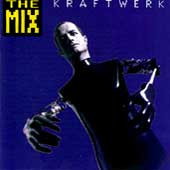
Computerlove — Kraftwerk (6.2MB, 6:37)
(song removed)
From The Mix.
[Update:]
And it feels like home
And there’s someone
Calling on the telephone
Let’s stay home
It’s cold outside
And I have so much
To confide to you
As I’ve wrote in this review of Ultra years ago, Depeche Mode is a band that’s been misunderstood and misunderestimated by a lot of people here in America. Which is not to say they’re some hidden secret — obviously, they’re one of the biggest bands in the world, and have had a huge US following for decades now.
Still, even today, in the reviews of DM’s recent Playing the Angel, rock critics trod out the doom-and-gloom “Depressed Mode” copy that’s been circulating since at least 1986’s Black Celebration. But they miss the point. Very few DM songs — Ok, “Satellite,” from A Broken Frame is one — are out-and-out depressing in the way, say, most Nine Inch Nails songs are. Rather, almost all of the songs on Black Celebration, one of my Desert Island discs, work in the same groove, including this one, “Here is the House.” As one review of “Enjoy the Silence” summed it up, it’s “me and you against the world.”
Yes, Celebration argues, this earth can be a cruel, unrelenting place, filled with misfortune and disappointment. But, maybe, just maybe, you and I can rise above all that, and together light a candle that’ll warm us both through another unforgiving night. In sum, DM’s best romantic ballads aren’t depressing so much as poignant and ever-so-slightly hopeful. I’ll be the first to admit that the band has come close to over-mining this particular mode after 25 years, but still, when they do it right, it’s a thing of beauty. (Also, since I’m sure a lot of people out there already have this song in their collection, I’ve also posted Martin’s early demo version, which actually fits the song really well in a lo-fi Magnetic Fields kinda way.)

Here is the House — Depeche Mode (4.1MB, 4:19)
Bonus Track: Here is the House (Demo) — Martin Gore (4.3MB, 4:35)
(songs removed)
Original version on Black Celebration.
[Update:]
running through my veins
the blood of eden keeps rushing through me
when I’m sure there’s none that remains
I had a hard time figuring out which song I wanted to post from Peter Gabriel’s sublime rumination on romance, Us (1992), ’cause almost every song — particularly on the A-side — is a certifiable classic. (A younger friend of mine once musically conflated Gabriel’s oeuvre with that of his Genesis bandmate Phil Collins, which almost drove me to apoplexy. I mean, I don’t hate Phil Collins or anything, but, c’mon now — Gabriel is a lot more than just “Sledgehammer,” and even “Sledgehammer” isn’t “Susudio.”)
In the end, I opted for this cut of “Blood of Eden” from Wim Wender’s Until the End of the World (which for some odd reason was left off that otherwise great soundtrack.) The Us version is disarmingly beautiful, but the lack of Sinead O’Connor’s backing vocals here lend the track a different resonance.
On the album, you can actually hear “the union of the woman and the man” in O’Connor and Gabriel’s lush harmony, but here, with Gabriel plaintive and alone, it’s just a fading memory, the echo of happier times. And yet, at certain moments (such as in the bridge), the memories come flooding back. “The blood of eden keeps rushing through me, when I’m sure there’s none that remains.” With love in the rear-view mirror, disappearing over the horizon, Pete still has the echoes of the past to keep him keepin’ on.

Blood of Eden (Wim Wenders Version) — Peter Gabriel (6.2MB, 6:40)
(song removed)
From Blood of Eden (Single).
[Update: The Wim Wenders version is hard to find on the tubes, but below is the original version with Sinead O’Connor.]
It’s well understood,
Most of the time
I wouldn’t change it if I could,
I can’t make it all match up, I can hold my own,
I can deal with the situation right down to the bone,
I can survive, I can endure
And I don’t even think about her
Most of the time.
Speaking of which, nobody does keep-on-keepin’-on like its coiner, the inimitable Bob Dylan. From “Don’t Think Twice” to “Like a Rolling Stone” and Blood on the Tracks to Time out of Mind, one of Bob’s career trademarks has been the post-mortem relationship song. Some are angry and vindictive, some are haunted, some are jaunty and could care less, some are resigned and reflective, some are (love)sick with remorse and regret. There are so many great songs that could have gone here, but I ended up choosing “Most of the Time,” from the somewhat underappreciated Oh Mercy (1989), the forerunner to Dylan’s recent revival. In this song, Bob’s basically got his act together and has moved on from an old love…most of the time. In direct contrast to Gabriel in “Eden,” the past here is treacherous. (“Most of the time, I can’t even be sure, if she was ever with me or if I was ever with her.“) Dylan’s learned to live with his scars, but at any moment — a passing haircut, a fleeting remembrance, a scent of perfume in the air — and he is undone once again, as if it were yesterday. After all, even for a guy like Bob Dylan, who once seemed to carry the weight of the world as if it were nothing, you don’t get very far in life without some ghosts in the machine.

Most of the Time — Bob Dylan (4.5MB, 5:03)
(song removed)
From Oh Mercy.
[Update:]
Ok, hopefully five tunes won’t kill my bandwidth…Have a safe and happy Valentine’s Day out there, y’all. (And, as a side note, if you’re looking for more quality music, be sure to check out the splendiferous Fluxblog almost-daily, and don’t miss out on the Max Music Mixes every month at Lots of Co.)
Notorious.
In the trailer bin, you can see the seed of Satan swinging in the new teaser for Omen 666 (Yes, another needless remake. But I like the cast: Liev Schreiber, Julia Stiles, Mia Farrow, David Thewlis, Michael Gambon, and Pete Postlethwaite.) Or, take a visit with another original temptress in the trailer for Mary Harron’s The Notorious Bettie Page, with Gretchen Mol (That’s Gretchen Mol?), Lili Taylor, and David Strathairn (as Estes Kefauver.)
Last Tango in Los Santos.
“The disturbing material in Grand Theft Auto and other games like it is stealing the innocence of our children and it’s making the difficult job of being a parent even harder.” It’s Dem Mods v. dem mods as Senators Hillary Clinton and (surprise, surprise) Joe Lieberman decide to sic the FTC on Rockstar Games for Grand Theft Auto: San Andreas, namely for the “Hot Coffee” PC mod which may or may not have been included in the original source code. (FYI, you can see the controversial game-clip here — It’s not safe for work, but it’s basically two pixellated characters having explicit sex in various positions, a la the puppets in Team America.)
As with most PMRC, V-Chip, and/or anti-Hollywood-style scapegoating for easy moderate bonus points, I don’t particularly think this type of sophomoric tomfoolery in an M-rated (17 and over) game is the central reason for the Decline and Fall of America’s Wayward Children. (And several wry Slashdotters have already pointed out the ridiculousness of the argument being made about GTA here: “I don’t care if my child carjacks a senior…[or] if he takes a golf club and starts clubbing to death pedestrians. But he may never, over my dead body, have adult on adult, consensual sex!“) But Sen. Clinton’s proposed remedy — adding teeth to the ratings system by potentially fining stores who sell M or AO-games to minors — doesn’t sound like the end of the world either. Update: Rockstar fesses up. Update 2: “Maybe she’d be wiser to focus on issues that matter to these people — say, the fighting and dying in Iraq — than on the fighting and the dying in the fake, fun world of ‘Grand Theft Auto.’” Slate‘s Farhad Manjoo calls out Clinton.
A Matter of Trust.
Some love is just a lie of the heart. But most of the time, it just means your oxytocin levels are out of whack…
Let Me Clear My Throat.
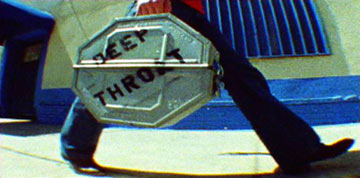
As both a path-breaking porno flick and a Nixon-felling secret informant, it may have been surprisingly successful. But, unfortunately, as a documentary, the one-sided Inside Deep Throat is a superfluous and self-congratulatory tale that’s more frustrating than fulfilling. Forgoing any attempt at analytic rigor, the movie seems designed mainly to make the audience feel enlightened and blue-state cosmopolitan just for showing up. The most you can say for it is that it’s Kinsey without the nuance.
In the opening moments, the documentary tries to establish its serious pedigree with a motley crew of left-leaning talking heads remembering their “first time” at Deep Throat: Norman Mailer, Erica Jong, Camille Paglia, Bill Maher, Dick Cavett (looking very well-preserved), Hef, Gore Vidal, John Waters, etc. Ok, so far, so good. But, then the interminably smug Dennis Hopper voiceover kicks in, and the movie begins its slow lurch into irredeemable goofiness.
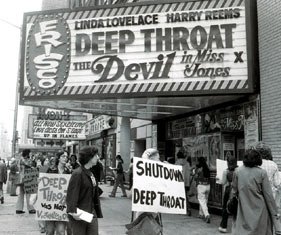 By the end, that lurch has become a full-on tailspin. The upshot of the film seems to be this: Deep Throat was no mere skin flick. It was about art, freedom, liberating female sexuality, and breaking restrictive social barriers…in short, it was about America.(Conversely, all subsequent porn, particularly in the post-Boogie Nights VHS-era, has been about commerce, exploitation, degradation, and, well, you know.) Moreover, the release of Deep Throat marked an epochal moment in the burgeoning culture wars, and this movie leaves no doubt which side it’s on — various would-be moral arbiters straight out of right-wing central casting are interviewed at times, and naturally they all make Ken Starr look like Larry Flynt. Meanwhile, the admittedly-dubious conviction of Deep Throat-star Harry Reems is treated like the worst threat to constitutional liberty in decades, a cross between the Hollywood Ten and the trial of Sir Thomas More.
By the end, that lurch has become a full-on tailspin. The upshot of the film seems to be this: Deep Throat was no mere skin flick. It was about art, freedom, liberating female sexuality, and breaking restrictive social barriers…in short, it was about America.(Conversely, all subsequent porn, particularly in the post-Boogie Nights VHS-era, has been about commerce, exploitation, degradation, and, well, you know.) Moreover, the release of Deep Throat marked an epochal moment in the burgeoning culture wars, and this movie leaves no doubt which side it’s on — various would-be moral arbiters straight out of right-wing central casting are interviewed at times, and naturally they all make Ken Starr look like Larry Flynt. Meanwhile, the admittedly-dubious conviction of Deep Throat-star Harry Reems is treated like the worst threat to constitutional liberty in decades, a cross between the Hollywood Ten and the trial of Sir Thomas More.
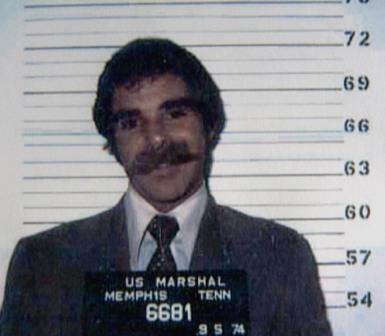 While I think Deep Throat‘s artistic merits are vastly overrated here — it’s a ludicrous porno that improbably tapped into the zeitgeist and fell ass-backwards into crossover appeal, no more, no less — I’m generally sympathetic to the case being made in this documentary about First Amendment freedoms and the snickering, adolescent way our culture handles adult sexuality most of the time. But Inside Deep Throat‘s bullheadedly partisan and hyperbolic tone does a disservice to its central arguments. In other words, like the stereotype of the industry it sought to illuminate, Inside Deep Throat turned out to be breathless and brainless…you’d probably be better off watching whatever’s on Skinemax.
While I think Deep Throat‘s artistic merits are vastly overrated here — it’s a ludicrous porno that improbably tapped into the zeitgeist and fell ass-backwards into crossover appeal, no more, no less — I’m generally sympathetic to the case being made in this documentary about First Amendment freedoms and the snickering, adolescent way our culture handles adult sexuality most of the time. But Inside Deep Throat‘s bullheadedly partisan and hyperbolic tone does a disservice to its central arguments. In other words, like the stereotype of the industry it sought to illuminate, Inside Deep Throat turned out to be breathless and brainless…you’d probably be better off watching whatever’s on Skinemax.
Love Songs.
I’m off early this morning to catch up with college friends for one of our semi-annual reunions, so I expect it’ll be quiet around here until next week. But, since it’s a holiday weekend of sorts, and since I’ve been perusing a number of MP3 blogs lately, I figured I wouldn’t leave on a jet plane before regaling you, my dear readers, with the Valentine’s gift of music. (The usual mp3blog rules apply: the files will be up this weekend and this weekend only, and please do not link to them.) So, without further ado:
You have to trust it,
Maybe not from the sources
you have poured yours
maybe not from the directions
you are staring at,
Twist your head around
it’s all around you
As y’all know, iconography from the stunning video to Bjork’s “All is Full of Love” has graced this site for years now, so it seemed a logical choice for GitM‘s Valentine. It’d be hard for me to introduce the song any better than Bjork did herself: “That song’s from a moment when I’d had a pretty rough winter and then it was a spring morning and I walked outside and the birds were singing: Spring is here! I wrote the song and recorded in half a day. It just clicked – you know: you’re being too stubborn, don’t be so silly, there is love everywhere. The feeling, the emotion of the song was like completely melting and loving everything and feeling like everything loved you, after a long time of not having that. The song, in essence, is actually about believing in love.“
Strangely enough, I experienced a very similar revelatory moment, traipsing around outside after a blizzard several years ago, while listening to this “Plaid” version of the song. It’s missing the languorous beat that’s so memorable in the single version, but I adore the fugue-like intro and textured, contrapuntal rhythms of this mix — They lend it a timeless, ethereal beauty that perfectly matches the celestial coo and growl of its Icelandic muse. I don’t want to hate on Love, Actually for too many posts in a row, but to my mind this song brilliantly encapsulates what that movie tried and failed to get at — Even in our loneliest moments, love surrounds us and binds us.

All is Full of Love (Plaid Mix) — Bjork (5.88MB, 4:17)
(song removed)
Original version on Homogenic.
[Update:]
***
I want you
I’m not ashamed to say I cried for you
I want you
I want to know the things you did that we do too
I want you
I want to hear he pleases you more than I do
I want you
I might as well be useless for all it means to you…
Bjork too sappy? Well, if, on the other hand, you prefer to spend Valentine’s Day prodding scars and excavating the thin line between love and hate, then here’s a streetlight serenade for you — a blistering-hot live version of Elvis Costello’s most savage, searing slow burn. Much of the resonance of the original “I Want You” lies in how what starts off as a run-of-the-mill torch song slowly degenerates into something much more complicated and sinister. This spooky, haunted-house version from the 2002 tour skips the set-up, but it’s nevertheless a poisonous mirrorball of rage and regret, bitterness and betrayal, loss and (self-)loathing…all those quintessential consequences of a love implosion that they just don’t seem to make Hallmark cards for (and it’s all topped off with a brief twinge of Yankee Power.) Our man Costello may be enthralled with Diana Krall these days, but as this song makes emphatically clear, there are still some things you just don’t wanna know about his dark life.
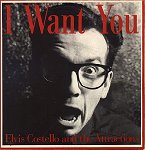
I Want You (Live in Nashville 2002) — Elvis Costello (15.1MB, 8:15)
(song removed)
Original version on Blood and Chocolate.
[Update]:
Either path you choose, have a safe and happy weekend, and I’ll catch y’all next week.
Kinsey on Lincoln.
Schindler, Rob Roy, Darkman, Qui-Gon, Kinsey…why not Honest Abe? Liam Neeson is apparently in talks to play Lincoln in a Spielberg-directed biopic, to be based on Doris Kearns Goodwin‘s forthcoming book, The Uniter. Ok, that’s not bad…but hopefully this project turns out better than Amistad.
Also in loosely related Lincoln-by-way-of-Kinsey news, Salon‘s Andrew O’Hehir casts a troubled eye at C.A. Tripp’s Intimate World of Abraham Lincoln. As he ably points out (as does George Chauncey in the excellent Gay New York), “the difficulty with assessing Lincoln’s private life (or that of anyone else who lived before the 20th century) is that the nature of private life has changed dramatically from his time to ours, and the distance between us distorts the view…Whether [Lincoln and Joshua Speed’s, with whom Lincoln shared a bed] relationship had a sexual component or not, it belongs to a vanished world of intimate male friendships of a kind almost unrecognizable to us.” In other words, sexual orientation is an historically dynamic idea. Homosociality does not necessarily imply homosexuality, and one cannot simply read 19th century sources and infer a 20th century mindset. You have to delve a little deeper. Update: Columbia’s David Greenberg also weighs in for Slate.
